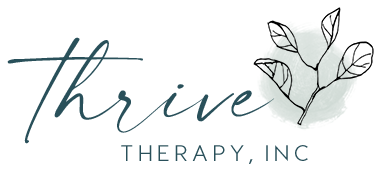The words “sexual assault” can feel very heavy, removed, and clinical. Boiled down, it is any unwanted sexual activity against a person without their consent. It includes a wide range of actions, including unwanted touching, kissing, penetration, and other forms of sexual contact. This is almost always accompanied by intimidation, coercion, or force. This is a severe violation of an individual’s boundaries. While this is also considered a criminal offense, today we will be talking about the personal toll sexual assault can have on a person. As a therapist who works with sexual assault survivors, I work closely with individuals who have experienced this and the resulting trauma.
Consent is Imperative
Consent is the foundational aspect of any sexual activity. Furthermore, without explicit and enthusiastic consent- it is considered a violation of that individual’s rights and boundaries. Such violations can have lasting effects on the survivor.
We often will overlook the “intimidation, coercion, and force” elements of sexual assault. Instead, we focus on what we, the survivors, did or didn’t do to “allow” an assault to happen. In doing so, we lose context and ignore the facts of what happened. Often, we will blame ourselves.
Sexual Assault is a Traumatic Experience
It can leave lasting emotional and psychological scars on its survivors. Not surprisingly, such intimate boundary violations can lead to problems such as depression, anxiety, disruptions in relationships, changes in functioning, and more. Post-Traumatic Stress Disorder (PTSD) is another problem that can develop following this type of trauma. This blog post, from the perspective of someone who provides Therapy for Sexual Assault Survivors, aims to shed light on the signs of PTSD after sexual assault. Further, it seeks to empower survivors and their loved ones to recognize signs that seeking help is necessary and remind us that we are not alone, and that meaningful help is possible.
The Aftermath of Sexual Assault
In the immediate aftermath of a sexual assault, it is normal to feel feelings like numbness, anxiousness, sadness, fear, and shock. Over time, especially with supportive friends and or family around you to help, these feelings tend to subside in the weeks following the assault. Other times, that natural recovery does not happen. Instead, survivors can notice a variety of symptoms that can greatly disrupt their daily lives. These symptoms often include the following:
Re-experiencing the Trauma of Sexual Assault
One of the hallmark symptoms of PTSD is intrusive memories of the traumatic event. Survivors of sexual assault may find themselves experiencing vivid and distressing recollections of the assault, often triggered by sights, sounds, or smells reminiscent of the event. Nightmares may also occur, disrupting sleep and exacerbating feelings of fear and helplessness.
Avoidance Behaviors
To cope with the overwhelming emotions tied to the assault, survivors may develop avoidance behaviors. This could involve steering clear of people, places, or activities that remind them of the assault. Avoidance may extend to discussing the event or even thinking about it, leading to a sense of detachment from their emotions and the world around them. Sometimes, alcohol and drugs can be used as an attempt to further avoid emotions.
Hyperarousal and Hypervigilance
Survivors may exhibit signs of hyperarousal, such as being easily startled, having trouble sleeping, or difficulty concentrating. They might also become hypervigilant. This means they are constantly on the lookout for potential threats. Such behavior can be exhausting and further exacerbate their anxiety and fear.
Negative Mood and Cognition
PTSD after sexual assault can lead to persistent negative thoughts and emotions. Survivors may struggle with feelings of guilt, shame, or self-blame, questioning their actions or choices during the assault. They might also experience a diminished interest in activities they once enjoyed, along with feelings of detachment from loved ones.
Emotional Numbing
To shield themselves from overwhelming emotions, survivors may develop a sense of emotional numbness. This can manifest as a lack of emotional responsiveness or a difficulty in expressing feelings, which can lead to strained relationships with friends and family.
Heightened Arousal and Emotional Reactivity After Sexual Assault
PTSD can lead to emotional outbursts, irritability, and difficulty regulating emotions. Survivors may feel on edge, with a heightened sense of vulnerability, making it difficult for them to trust others or feel safe in their surroundings.
Physical Symptoms
PTSD can also manifest in physical symptoms, such as headaches, gastrointestinal problems, muscle tension, and a compromised immune system. These physical manifestations often arise due to the body’s response to chronic stress and anxiety.
Set Yourself on the Path to Healing with Therapy for Sexual Assault Survivors in Ohio, Kentucky, and New York.
Recognizing the signs of PTSD after sexual assault is crucial in providing support and understanding for survivors on their path to healing. It’s essential to provide survivors with empathy, compassion, and non-judgmental support, understanding that their journey to recovery is a complex and individual process. Encouraging survivors to seek professional help, such as Therapy for Sexual Assault Survivors, can play a pivotal role in their healing and help them regain a sense of control over their lives.
If you or someone you know has survived a sexual assault and are interested in talking through possible treatment options, please contact us here. You are not alone, hope and healing are possible.
- Schedule a free 15-minute phone consultation.
- Meet with me to discuss your therapy needs and goals.
- Start thriving in a life free from past trauma.




